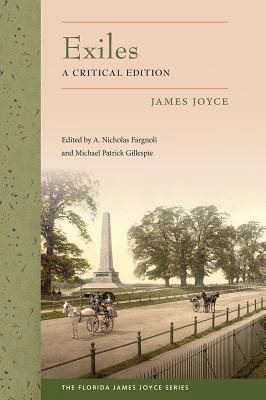
- Retrait gratuit dans votre magasin Club
- 7.000.000 titres dans notre catalogue
- Payer en toute sécurité
- Toujours un magasin près de chez vous
- Retrait gratuit dans votre magasin Club
- 7.000.0000 titres dans notre catalogue
- Payer en toute sécurité
- Toujours un magasin près de chez vous
Description
Joyce's only extant play, Exiles, is also his least appreciated work. Its form and its content--daunting even to Joyceans--create interpretive issues for readers and theater audiences who expect the deeper pleasures derived from Dubliners or Ulysses. Confronting a host of assumptions, misprisions, and prejudices, A. Nicholas Fargnoli and Michael Patrick Gillespie contend that the play deserves the same serious study as Joyce's fiction and stands on the cutting edge of modern drama.
The introduction situates Exiles in the context of Irish history and Joyce's other works. It highlights its often-overlooked complexity and closely examines the creative and domestic forces that contributed to the imaginative ethos from which the play emerged. The text of the play is newly annotated and unregularized, appearing for the first time as Joyce originally intended. This edition concludes with a range of critical responses, including essays on the confessional mode, characterization, and allegory, as well as an interview with Richard Nash, who has both directed and acted in the play.
Spécifications
Parties prenantes
- Auteur(s) :
- Editeur:
Contenu
- Nombre de pages :
- 364
- Langue:
- Anglais
- Collection :
Caractéristiques
- EAN:
- 9780813064376
- Date de parution :
- 10-09-19
- Format:
- Livre broché
- Format numérique:
- Trade paperback (VS)
- Dimensions :
- 152 mm x 229 mm
- Poids :
- 530 g

Les avis
Nous publions uniquement les avis qui respectent les conditions requises. Consultez nos conditions pour les avis.






